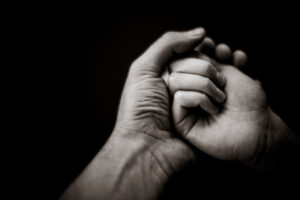
How Does Grief Affect?
The reaction towards grief is different for every individual. Anxiety and helplessness often accompany in periods of grief. Sometimes, there are bursts of emotions and anger. Anger might come from the fact of the loss itself. Being left alone, becomes a lonely and frustrating affair. Then sadness follows, but it comes at a later period.

Knowing that these feelings are normal is very important. It helps in the grieving process in itself. Thus, it gives a hope that everything will turn out well. Also, it is also very important that you know these feelings will pass away.
Although, it’s a long process it varies from person to person. For some, it takes few weeks for others it might take a year or more. Thus, some people also need therapy or counseling to cope up with grief. But, eventually, it will go away. So, the hope to recover, helps you to cope with it.
How to cope with grief?
Firstly, it is important to know that there are no quick fixes. It will take its time depending on the relationship between the person or the object. But, after the period passes away it is less likely to be at the forefront of your mind.
Below are some ways which can help you in times of loss:
- Express: Talking about the loss helps in coping up with it. It soothes the pain and helps in the healing process. A good friend, a therapist, a family member or a counselor can help you begin the process.
- Feeling Sad: It is a normal process to feel sad. You should allow yourself to feel sad. It helps you express the turmoil you are feeling. It is also a healthy part of grieving.
- Routine: Keeping up with the routine is very important. It helps you process and keeps you functional. Simple things like, walking the dog or eating your favorite meal help in the process of being functional.

Dr Prerna Kohli India’s Top Psychologist on Coping up with Loss - Sleep: An emotional problem always effects your sleep. Sleeping recharges your emotional strength. If you have trouble sleeping then please see a professional.
- Eat Healthily: A healthy well-maintained diet helps you cope up. A good physical health helps in keeping a healthy emotional health.
- Avoid the thing which “Numb”: It is important that you avoid things which “numb” the pain. Alcohol and other substances will help you numb the pain momentarily. Once the effect wears off, the pain will be increased. Also, it can start a vicious cycle of addiction, which will lead to other problems.
When to get help?
Going to counseling straight away might not be a good option. But, if the sadness persists over a couple of months it is advised to get help. You will know when you want counseling or professional help. If the following persists you for over two months then it is best to get help.
- You are not able to cope up with the emotions and unable to function daily routines.
- The extreme emotions are not going away.
- Loss of sleep.

Dr Prerna Kohli India’s Top Psychologist on Coping up with Loss - You start showing symptoms of depression or anxiety.
- Your other relationships are being affected.
- Facing sexual problems.
- Taking care of someone who is not able to cope up well.
- Having a lot of accidents, or becoming accident-prone.
In conclusion, grief feels like a very difficult and lonely process. But, the ray of hope leads to a better environment. It is necessary that you do not isolate yourself. It is very important to be around friends or loved ones in such periods. You can always consult a professional, or a counselor to help you cope with grief.
If you need Psychologist click here

